My First $1 Million: Electric Utility Executive, 56, South Carolina
"My mentors advised me to max out my 401(k), because you will never miss the money if you start from day one. I did, and they were right."
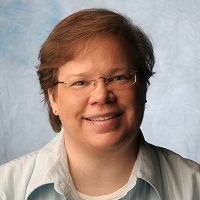
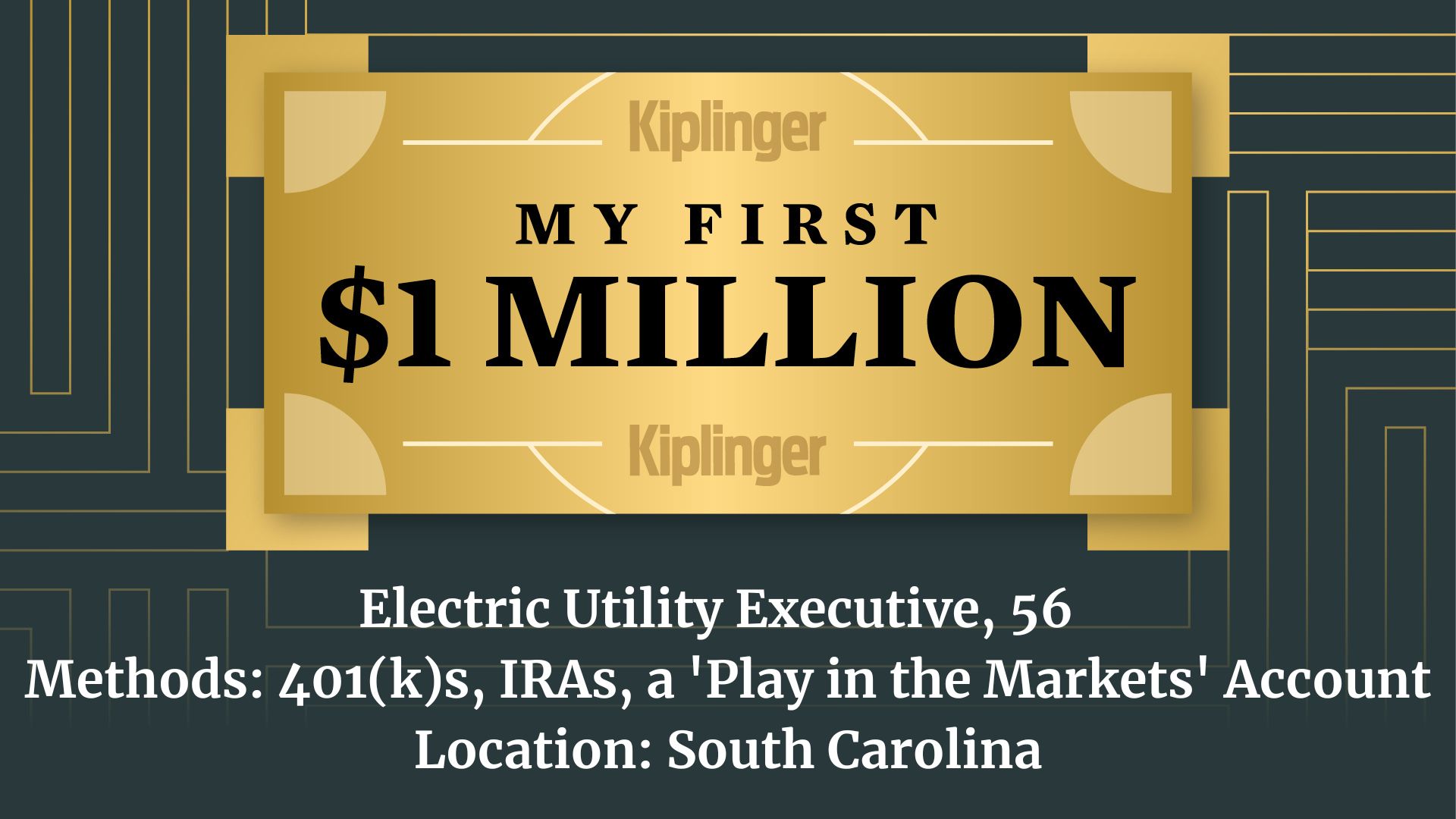
Profit and prosper with the best of Kiplinger's advice on investing, taxes, retirement, personal finance and much more. Delivered daily. Enter your email in the box and click Sign Me Up.
You are now subscribed
Your newsletter sign-up was successful
Want to add more newsletters?
Welcome to Kiplinger's My First $1 Million series, in which we hear from people who have made $1 million. They're sharing how they did it and what they're doing with it. This time, we hear from a 56-year-old married high-ranking executive at an electric utility in South Carolina.
See our earlier profiles, including a writer in New England, a literacy interventionist in Colorado, a semiretired entrepreneur in Nashville and an events industry CEO in Northern New Jersey. (See all of the profiles here.)
Each profile features one person or couple, who will always be completely anonymous to readers, answering questions to help our readers learn from their experience.
From just $107.88 $24.99 for Kiplinger Personal Finance
Become a smarter, better informed investor. Subscribe from just $107.88 $24.99, plus get up to 4 Special Issues

Sign up for Kiplinger’s Free Newsletters
Profit and prosper with the best of expert advice on investing, taxes, retirement, personal finance and more - straight to your e-mail.
Profit and prosper with the best of expert advice - straight to your e-mail.
These features are intended to provide a window into how different people build their savings — they're not intended to provide financial advice.
THE BASICS
How did you make your first $1 million?
I'm an engineer and received advice from my parents and my mentors at my first job to save and invest in myself.
I used 401(k)s, IRAs and what I used to call a Flyer account. That's an account my wife let me have to "play around in the stock market."
It's grown so much over the past 35 years that it's hard to call it a Flyer account anymore, as that was meant to be our term for investing in companies that were changing the world.

It took us 29 years to make our first million by working together. To be exact, for me it was 18,218 days from the day I was born. A few less days for her, as she is a few months younger.
What are you doing with the money?
Our money has stayed put, but early savings have provided us with the resources to grow our family. We have been through adoption, foster care and just bringing in young people who needed love.

So far, we have put four kids through college, with three of them investing in themselves as well and earning master's degrees. Two more are still in school but will be out soon.
All long, our motto has been, "Spend less than you make. With each paycheck, bonus or gift, spend a little, save a little and give a little."
We have tried to pass this on to our family.
THE FUN STUFF
Did you do anything to celebrate?
Absolutely. We bought my wife her first new car ever. Of course, she's still driving it six years later and plans to keep driving it for many years to come.

Does anyone know you're a millionaire?
We told our kids and parents. In addition, I told many of my early mentors at work who told me to max out my 401(k) when I was 20 years old. What a blessing they were in our lives.
What is the best part of making $1 million?
Being able to give back to your community.
Did your life change?
Yes. It allowed us to help young people expand their horizons. Assisting others to succeed and considering them family, without alienating their biological family, has been a blessing.
Any plans to retire early?
I don't think so. I'm always worried that people look at my title (as an executive) and don't realize the time, work and effort that my wife and I put into our family and work balance.
She stayed home and managed the house. This allowed me to concentrate on work and education.
The family let me go back to school many times, which meant many hours studying at home and attending class, but I involved each of the kids in my studies.

Ultimately, I had my bachelor's degree when we married, but I picked up four master's degrees and just recently a PhD.
Investing in myself and producing results at work meant all the difference.
LOOKING BACK
Anything you would do differently?
I would have been more aggressive and paid more attention to fees.
When I first came into the workforce, there was the notion that you should blend your retirement accounts into stocks, bonds and international funds. For a young person, I'm not sure that was aggressive enough.
Not that I'm complaining — it just would allow us to give back more to our community now.
Did you work with a financial adviser?
Off and on, we've worked with advisers. Currently, we work with Charles Schwab and individuals from the Homestead Funds.
Did anyone help you early on?
My mentors at work, Frank and Brad, both advised me to max out my 401(k) percentage allowed by the company because you will never miss the money if you start from day one.

I did, and they were right. This is great advice to give young people.
LOOKING AHEAD
Plans for your next $1 million?
Stay on target to retire well and make sure the next generation of our family and community are blessed with opportunities to be the best they can be in life.
Any advice for others trying to make their first $1 million?
Get started. That's the most challenging part.
I tell my children about each savings milestone.
- Do you know which $100 is the hardest? The first.
- Do you know which $1,000 is the hardest? The first?
- Do you know which million is the hardest? The first.
Do you have an estate plan?
Our estate plan includes a revocable trust, a will and power of attorney.
Everyone should take time to get a will. What we learned about each other after 20 years of marriage was that my wife wanted to be cremated, and I wanted to be buried.
We joke that the last person standing ultimately gets to decide.
What are you glad you know before you retire?
The idea that we need to retire to something instead of away from something is on my mind quite often.
What do you wish you'd known …
When you first started saving? To be more aggressive. Don't worry about market downturns; they will correct.
Also, invest a little in things you are using. I used Amazon when they were just selling books and invested just a little.
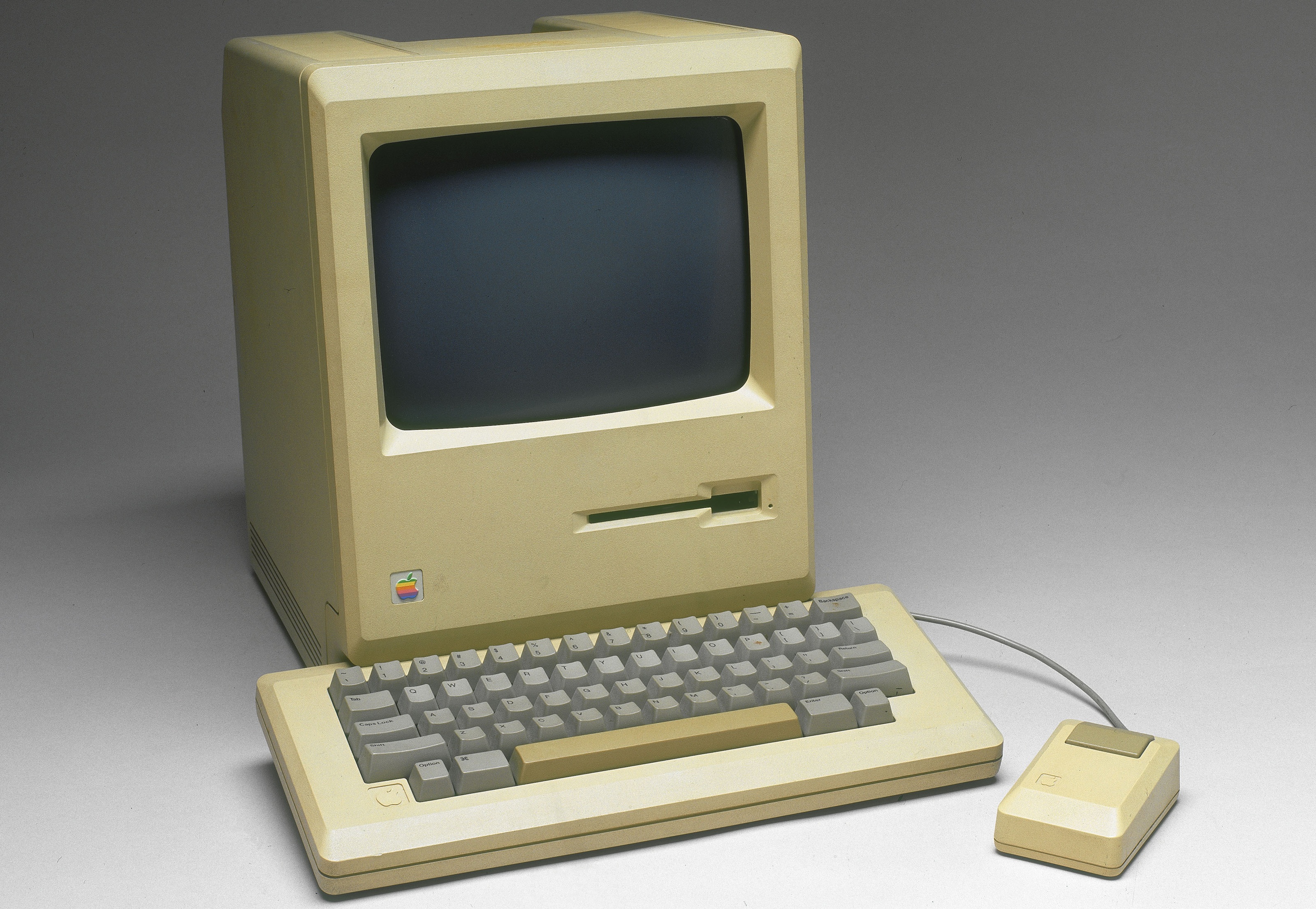
My wife liked Apple computers, and we put a little money in there as well. Invest in the companies who make or provide the products you like.
When you first started investing? I wish I understood fund management fees better. I can't remember how long this took, but fees matter, not as much as performance, but fees matter.
When you first started working with a financial professional? You need to work with someone who has a fiduciary responsibility to you, the investor.
If you have made $1 million or more and would like to be anonymously featured in a future My First $1 Million profile, please fill out and submit this Google Form or send an email to MyFirstMillion@futurenet.com to receive the questions. We welcome all stories that add up to $1 million or more in your accounts, although we will use discretion in which stories we choose to publish, to ensure we share a diversity of experiences. We also might want to verify that you really do have $1 million. Your answers may be edited for clarity.
RELATED CONTENT
- You're 62 Years Old With $1 Million Saved: Can You Retire?
- Want to Earn $1 Million More Over Your Lifetime? Do This
- Do You Have at Least $1 Million in Tax-Deferred Investments?
- Are You Rich? U.S. Net Worth Percentiles Can Provide Answers
- Compare Your Net Worth by Age
Profit and prosper with the best of Kiplinger's advice on investing, taxes, retirement, personal finance and much more. Delivered daily. Enter your email in the box and click Sign Me Up.
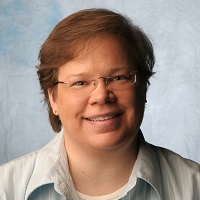
As Contributed Content Editor for the Adviser Intel channel on Kiplinger.com, Joyce edits articles from hundreds of financial experts about retirement planning strategies, including estate planning, taxes, personal finance, investing, charitable giving and more. She has more than 30 years of editing experience in business and features news, including 15 years in the Money section at USA Today.
-
 4 High-End Experiences Worth the Splurge After 50
4 High-End Experiences Worth the Splurge After 50These curated date ideas provide the perfect backdrop for couples ready to enjoy the very best that the world has to offer.
-
 Health Care Stocks Have Sagged. Can You Bet on a Recovery?
Health Care Stocks Have Sagged. Can You Bet on a Recovery?The flagging health care sector has perked up a bit lately. Is it time to invest?
-
 Costco's Auto Program: Can Membership Pricing Really Save You Money on a Car?
Costco's Auto Program: Can Membership Pricing Really Save You Money on a Car?Costco's Auto Program can simplify the car-buying process with prearranged pricing and member perks. Here's what to know before you use it.
-
 What Is an Assumable Mortgage and Could It Save You Thousands?
What Is an Assumable Mortgage and Could It Save You Thousands?With mortgage rates still elevated, taking over a seller’s existing home loan could lower monthly payments — if the numbers work.
-
 Have You Fallen Into the High-Earning Trap? This Is How to Escape
Have You Fallen Into the High-Earning Trap? This Is How to EscapeHigh income is a gift, but it can pull you into higher spending, undisciplined investing and overreliance on future earnings. These actionable steps will help you escape the trap.
-
 I'm a Financial Adviser: These 3 Questions Can Help You Navigate a Noisy Year With Financial Clarity
I'm a Financial Adviser: These 3 Questions Can Help You Navigate a Noisy Year With Financial ClarityThe key is to resist focusing only on the markets. Instead, when making financial decisions, think about your values and what matters the most to you.
-
 Where Olympians Store Their Medals is a Great Lesson For Your Valuables and Cash
Where Olympians Store Their Medals is a Great Lesson For Your Valuables and CashWhat you can learn about protecting your cash and values from where Olympians store their medals.
-
 An Executive's 'Idiotic' Idea: Skip Safety Class and Commit a Federal Crime
An Executive's 'Idiotic' Idea: Skip Safety Class and Commit a Federal CrimeSeveral medical professionals reached out to say that one of their bosses suggested committing a crime to fulfill OSHA requirements. What's an employee to do?
-
 How You Can Use the Financial Resource Built Into Your Home to Help With Your Long-Term Goals
How You Can Use the Financial Resource Built Into Your Home to Help With Your Long-Term GoalsHomeowners are increasingly using their home equity, through products like HELOCs and home equity loans, as a financial resource for managing debt, funding renovations and more.
-
 How to Find Free Money for Graduate School as Federal Loans Tighten in 2026
How to Find Free Money for Graduate School as Federal Loans Tighten in 2026Starting July 1, federal borrowing will be capped for new graduate students, making scholarships and other forms of "free money" vital. Here's what to know.
-
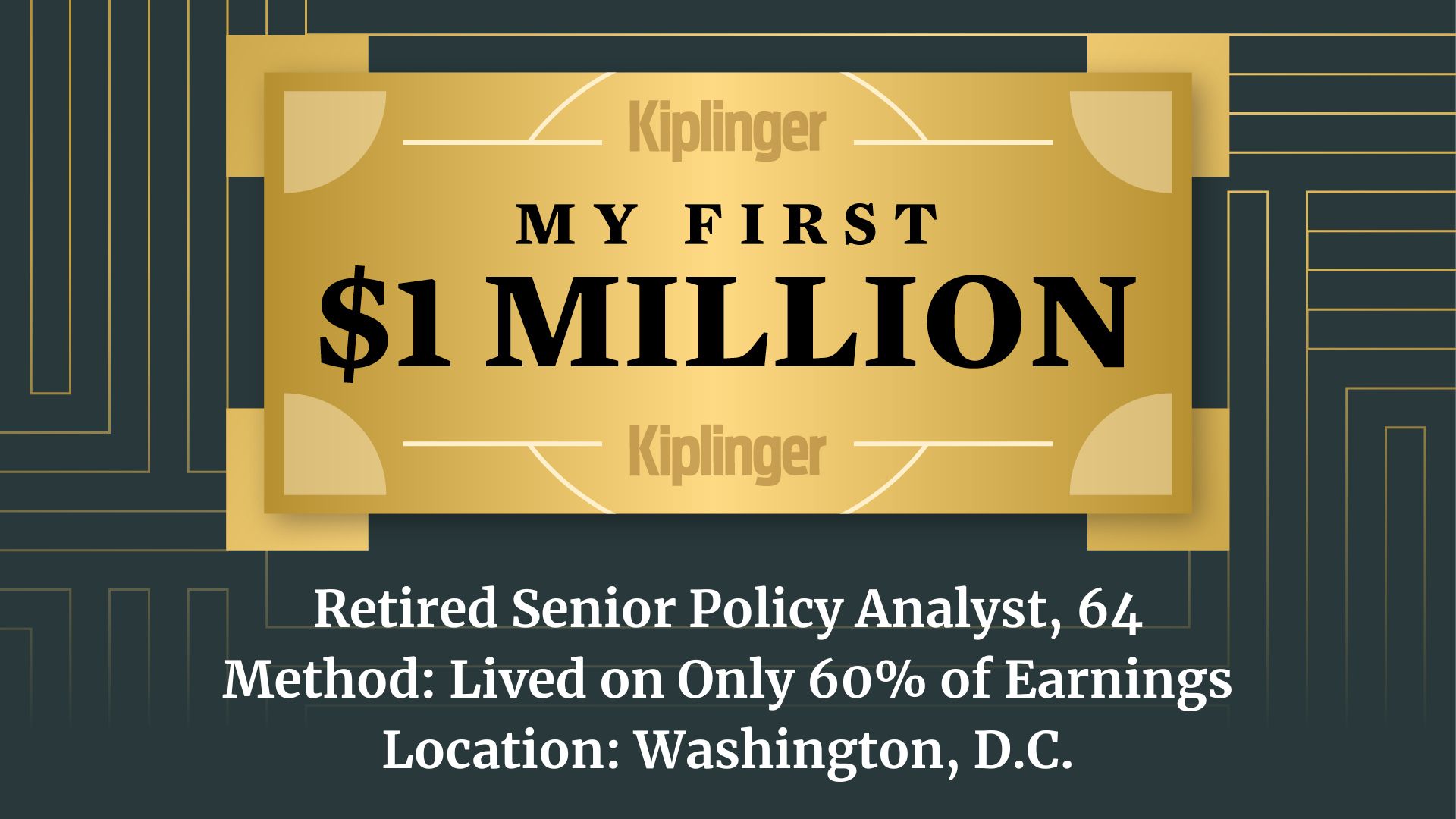 My First $1 Million: Retired Senior Policy Analyst, 64, Washington, D.C.
My First $1 Million: Retired Senior Policy Analyst, 64, Washington, D.C.Ever wonder how someone who's made a million dollars or more did it? Kiplinger's My First $1 Million series uncovers the answers.